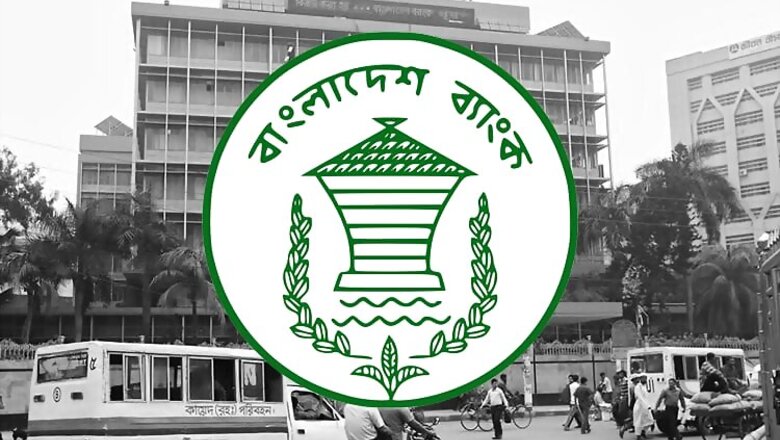
views
Manila: The laundering through the Philippines of $81 million stolen by hackers from a US Federal Reserve account is adding to pressures on the Southeast Asian country to fix loopholes in its financial regime.
It also highlights a potential pitfall in global anti-money laundering efforts, which in the case of the Philippines has focused more on vanquishing terrorist financing than on preventing misuse of the financial system by banks and casinos.
The disclosure of the theft from an account of the Bangladesh central bank at the New York Fed, has given such issues fresh traction, with a front-runner for the May presidential election, Senator Grace Poe calling for a change to the Philippines' stringent bank secrecy law.
"The trend now in the world is having bank disclosures, not bank secrecy," Poe told reporters earlier this week. "This is to prevent also the funneling of money down to terroristic activities, drug cartels, etc. We should be one with the international community in preventing such activities."
Sergio Osmena III, chairman of the Philippine Senate's committee on Banks, Financial Institutions and Currencies, said Thursday he is preparing to propose amendments to the anti-money laundering law. He wants gaming, and possibly real estate brokers and art dealers, to be subject to the money laundering law and wants bank secrecy laws to be relaxed.
"I know we're going to have to weaken that now because we're out of alignment with the rest of the world," he told ABS-CBN television. "It's very embarrassing to us, very embarrassing to our country."
"We're trying to establish ourselves as the money laundering capital ... I don't think we want that to happen," he said, calling the country's casinos a money trail "black hole."
The Philippines' anti-money laundering agency says it has sought help from the Federal Bureau of Investigations in the case.
Bankers in the Philippines evidently knew something was amiss weeks before the Bangladesh Bank announced the theft.
On Thursday, the Philippine Senate held a second hearing into how the stolen funds were transmitted to four private accounts at a branch of the Rizal Commercial Banking Corp. and then sent to casino operators, who are not subject to the country's anti-money laundering law.
During the televised hearing, Romualdo Agarrado, the bank branch's customer service manager, testified that on Feb. 5, when the funds were transmitted to the accounts, he saw a bank messenger and another bank officer load 20 million pesos ($428,000) in a paper bag into the car of the bank's branch manager, Maia Santos-Deguito. He said she drove off with the money.
Officials allege the money was withdrawn from a bogus account set up under the name of a local businessman, William So Go, who denies any involvement in the transfers.
Agarrado also accused Deguito of offering him a 5 million pesos ($107,000) bribe and of ignoring his Feb. 9 recommendation to heed an email from the bank's head office ordering a recall of the funds.
The bank's internal investigation showed Deguito helped to set up an account under Go's name, with a forged signature, said Macel Fernandez-Estavillo, a director and in charge of legal affairs at the Rizal Commercial Banking Corp.
The stolen funds are thought to have been consolidated into that account, converted into pesos and sent through a remittance company to two casinos and to a person named Weikang Xu, according to the Philippine Anti-Money Laundering Council executive director, Julia Bacay Abad.
Xu runs casino junkets, said Silverio Benny J. Tan, corporate secretary of Bloomberry Resorts Corp., which runs Solaire Resorts and Casinos — one of the companies that allegedly received the funds.
Many details of the case remain murky, such as who was behind the heist and how the hackers breached the Bangladesh Bank's cybersecurity. No arrests have been announced so far, though Deguito faces a criminal complaint that could result in charges against her.
Deguito has denied any wrongdoing but chose to speak to the Senate committee in a closed-door session, invoking her right not to incriminate herself.
Her lawyer, Ferdinand Topacio, told DZMM radio Thursday that his client has emails and text messages proving senior RCBC officers approved transferring the funds to the casino operators.
In 2013, the Financial Action Task Force, the global anti-money laundering watchdog, took the Philippines off of its list of countries with deficient compliance in their safeguards. It cited progress in preventing terrorist financing but also said the Philippines had committed to improving oversight of its thriving casino industry.
Roberto de Ocampo, a former finance secretary, who now is chairman of Veterans Bank, a commercial bank said the money laundering case offers the opportunity for the Philippines, whose economy is on an upswing, to showcase "we are up to the task of being able to solve it quickly and effectively."
"I think what is important is that we take decisive action on the issue," said Peter Perfecto, executive director of the influential Makati Business Club. "If there is no credible resolution, then of course that will be a problem but judging from how things are moving, I think there will be some decisive action taken."

















Comments
0 comment